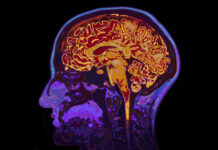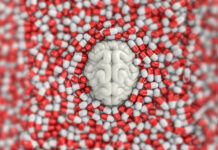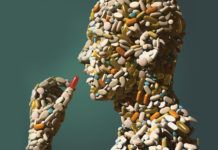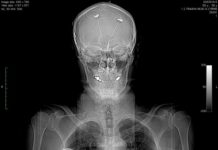The Door to a Revolution in Psychiatry Cracks Open
The Ministry of Health in Norway has ordered its four regional health authorities to offer medicine-free treatment in psychiatric hospitals. A six-bed ward in Tromso, which is in the far north of Norway, is now providing such care.
Searching for the “Psychiatric Yeti”: Schizophrenia Is Not Genetic
After decades of study, billions of dollars spent, and thousands of studies conducted, the failure to identify any genes for schizophrenia should definitively put to rest the notion that schizophrenia is a genetic disorder, according to E. Fuller Torrey.
Psychiatry, Fraud, and the Case for a Class-Action Lawsuit
For decades, psychiatry committed medical fraud when it told the public that antidepressants fixed a chemical imbalance in the brain.
“Tetris for Trauma” Viral Twitter Thread: A Master Class in Misleading Psych Research
A TV writer claims that research shows that Tetris is “literally a trauma first aid kit.” Her tweets sound scientific, but the research behind it is unconvincing.
Ending The Silence Around Psychedelic Therapy Abuse
All the new hype about miracle psychedelic treatments as the next wave of cures for mental disorders leaves out the risk of therapy abuse.
Muzzled by Psychiatry in a Time of Crisis
The American Psychiatric Association and its former president, Jeffrey Lieberman, have used the Goldwater Rule to try to silence Yale psychiatrist Bandy Lee and colleagues who warned, in a collection of essays, about why President Trump is "dangerous." Why would a guild choose to do this?
Lancet Psychiatry Needs to Retract the ADHD-Enigma Study
Lancet Psychiatry, a UK-based medical journal, recently published a study that concluded brain scans showed that individuals diagnosed with ADHD had smaller brains. That conclusion is belied by the study data. The journal needs to retract this study.
UPDATE: Lancet Psychiatry (online) has published letters critical of the study, and the authors' response, and a correction.
Do Antidepressants Work? A People’s Review of the Evidence
After a meta-analysis of RCTs of antidepressants was published in Lancet, psychiatry stated that it proved that "antidepressants" work. However, effectiveness studies of real-world patients reveal the opposite: the medications increase the likelihood that patients will become chronically depressed, and disabled by the disorder.
MIA Survey: Ex-patients Tell of Force, Trauma and Sexual Abuse in America’s Mental Hospitals
In a MIA survey of people who had been patients in mental hospitals, nearly 500 respondents told of an experience that was often traumatic, and frequently characterized by a violation of their legal rights, forced treatment with drugs, and physical or sexual abuse. Only 17% said they were “satisfied” with the “quality of the psychiatric treatment” they received.
Suicide Hotlines Bill Themselves as Confidential—Even as Some Trace Your Call
Every year suicide hotline centers covertly trace tens of thousands of confidential calls, and police come to homes, schools, and workplaces to forcibly take callers to psychiatric hospitals.
Psychiatry Defends Its Antipsychotics: A Case Study of Institutional Corruption
Jeffrey LIeberman and colleagues have published a paper in the American Journal of Psychiatry stating that there is no evidence that psychiatric drugs cause long-term harm, and that the evidence shows that these drugs provide a great benefit to patients. A close examination of their review reveals that it is a classic example of institutional corruption, which was meant to protect guild interests.
Medication-Free Treatment in Norway: A Private Hospital Takes Center Stage
At the Hurdalsjøen Recovery Center in Norway, patients with a long history of psychiatric hospitalizations are tapering from their medications and, in a therapeutic environment that emphasizes a good diet, exercise, and asking patients "what do they want in life," are leaving their old lives as chronic patients behind.
Screening + Drug Treatment = Increase in Veteran Suicides
For the past 15 years, the VA's suicide prevention efforts have focused on getting veterans screened and treated for psychiatric disorders, with antidepressants a first-line therapy. This effort has caused veteran suicide rates to steadily rise.
Suicide in the Age of Prozac
During the past twenty years, the American Foundation for Suicide Prevention and American psychiatry have adopted a "medicalized" approach to preventing suicide, claiming that antidepressants are protective against suicide. Yet, the suicide rate in the United States has increased 30% since 2000, a time of rising usage of antidepressants. A review of studies of the effects of mental health treatment and antidepressants on suicide reveals why this medicalized approach has not only failed, but pushed suicide rates higher.
The False Memory Syndrome at 30: How Flawed Science Turned into Conventional Wisdom ...
Soon after states finally began providing adults who remembered childhood abuse with the legal standing to sue, the FMSF began waging a PR campaign to discredit their memories—in both courtrooms and in the public mind.
May Cause Side Effects–Radical Acceptance and Psychiatric Drug Withdrawal: An Interview with Brooke Siem
Brooke Siem discusses her experiences of being medicated with antidepressants as a teenager, her withdrawal from a cocktail of psychiatric drugs and her debut memoir, May Cause Side Effects.
An FDA Whistleblower’s Documents: Commerce, Corruption, and Death
In 2008, a reviewer of psychiatric drugs at the FDA, Ron Kavanagh, complained to Congress that the FDA was approving a new antipsychotic that was ineffective and yet had adverse effects that increased the risk of death. Twelve years later, a review of the whistleblower documents reveal an FDA approval process that can lead to the marketing of drugs sure to harm public health.
Psychiatric Detentions Rise 120% in First Year of 988
As contacts to the new 988 suicide hotline number have risen, so have call tracing and police interventions.
Depression: Psychiatry’s Discredited Theories and Drugs Versus a Sane Model and Approach
Psychiatry’s depression outcomes are poor because its bio-chemical-electrical treatments are based on a depression model that science has flushed down the toilet.
The Charade of New Drug Approvals for Schizophrenia
The FDA recently approved lumateperone for schizophrenia. A review of the clinical trials reveals a testing process that is fatally flawed, and a new drug coming to market that doesn't provide a clinically meaningful benefit.
Peer-Support Groups Were Right, Guidelines Were Wrong: Dr. Mark Horowitz on Tapering Off Antidepressants
In an interview with MIA, Dr. Horowitz discusses his recent article on why tapering off antidepressants can take months or even years.
A Short History of Tardive Dyskinesia: 65 Years of Drug-Induced Brain Damage That Rolls...
Psychiatry has long turned a blind eye to the full scope of harm associated with TD. New TD drugs "work" by further impairing brain function.
Therapy by App: A Clinical Psychologist Tries BetterHelp
Revealing concerns about BetterHelp’s ability to provide quality, secure treatment—and the unresolved tensions in the science of psychotherapy that services like BetterHelp exploit.
The STAR*D Scandal: Scientific Misconduct on a Grand Scale
The American Journal of Psychiatry Needs to Retract Study That Reported Fraudulent Results
Adverse Effects: The Perils of Deep Brain Stimulation for Depression
Hundreds of people have been given remote control deep brain stimulation implants for psychiatric disorders such as depression, OCD and Tourette’s. Yet DBS specialists still have no clue about its mechanisms of action and research suggests its hefty health and safety risks far outweigh benefits.

































